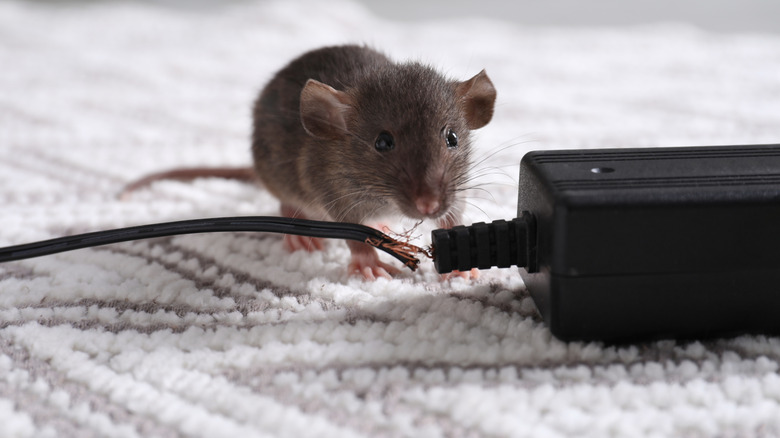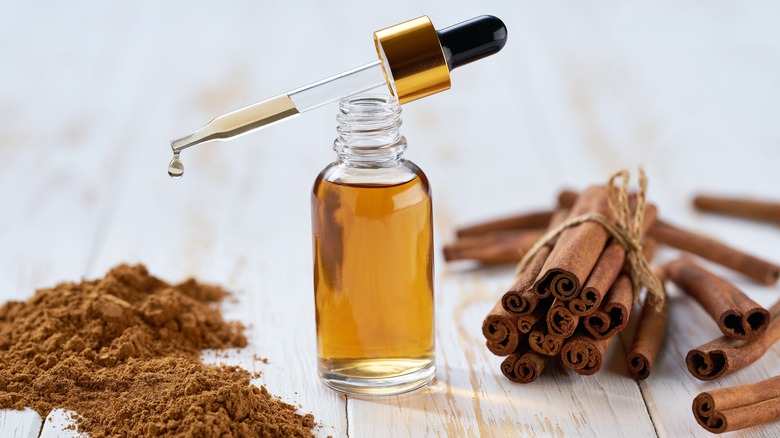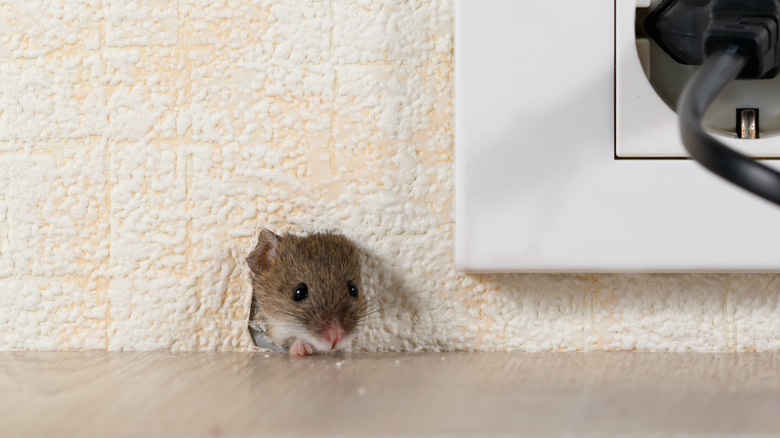Steer Mice Away From Your Home With The Help Of This Spicy Scent
Once you start sharing your home with mice, it starts to feel like it's not much of a home at all. The more that these rodents get increasingly comfortable within your walls, the more they'll keep you on your toes and you'll anxiously start awaiting their next appearance. Rodent pests like mice and rats will eat food crumbs, chew electronic wires, and gnaw on your curtains and home furnishings — they may even bite and leave you with a pretty nasty mark or two.
Although there are a few different ways to stop rodents from entering your house, one of the simplest solutions you'll often see recommended is to use cinnamon. There are many surprising uses for cinnamon, but pest control companies recommend it as an easy at-home way to deter mice from targeted areas of the home due to its overwhelming scent: if that scent is applied heavily enough to something, preferably with cinnamon oil, rodents will do their best to avoid it.
Adding the cinnamon scent to strategic locations around the home, therefore, can theoretically prevent them from entering. As an added bonus, the spice can make your home smell great, so this is a great hack to consider if you're trying to get rid of these pesky rodents. However, remember that using cinnamon to repel mice is not a permanent solution, and should only be one part of a bigger overall plan.
Tips on using cinnamon to keep mice out of the home
While the effectiveness of cinnamon as a rodent control method remains to be truly proven on a scientific level, it's a popular recommendation from pest control companies such as Thomas Pest Services, Critter Stop, Victor, Eliminate LTD, and many more. It's also a common ingredient in retail products like Grandpa Gus's Mouse Repellent Pouches.
That said, if you're just trying to use the cinnamon in your pantry, methods can range from sprinkling cinnamon powder in a few strategic spots to placing cinnamon sticks. Arguably a more efficient method is the use of cinnamon oil, which also tends to be the recommendation of the pest control companies. Using a spray bottle, you can apply this solution around your home, concentrating on certain spots where you've seen mice the most. That said, note that frequent reapplication will be necessary, as the scent fades and thus so does its deterrence abilities. Also note that this approach is not as effective for rats.
No matter what, if you're going to give the cinnamon approach a shot, it's essential to choose the right locations. Where are they entering, for one? Anywhere you have food is worth paying attention to, so consider adding the scent to the pantry and kitchen, first and foremost. Prioritize spots under the sink, and any corners or dark places in the kitchen. Your home's attic, garage, and basement are also worth paying some extra attention to.
The limitations of cinnamon for controlling a mice infestation
Even though professional companies do recommend cinnamon, it's important to stipulate that this is just one way to start targeting your mice problem. You'll have to do more than just spray cinnamon if you really want to eliminate them.
Further still, any approach truly must be targeted and repetitive. The cinnamon scent will be more potent when you first apply it to an area, but it will then start to diffuse, so repeated use will be necessary to get results. Additionally, some rodents may simply be unaffected by this solution altogether, and they may not be deterred so easily. Results can vary and you may find that it doesn't work as well in your home as it has for other people.
Also, keep in mind that using cinnamon as a deterrent doesn't address the root problems of an infestation. To ensure rodents like mice and rats stop coming into your home, you'll also need to use other tactics. In particular, it's essential to seal entry points and eliminate food sources and crumbs, perhaps by sealing all your food in plastic or glass containers. In the end, a truly larger infestation may require the use of stronger pest control techniques, so consider the size and severity of your infestation when choosing the best approach to take. Hire professionals if necessary.


